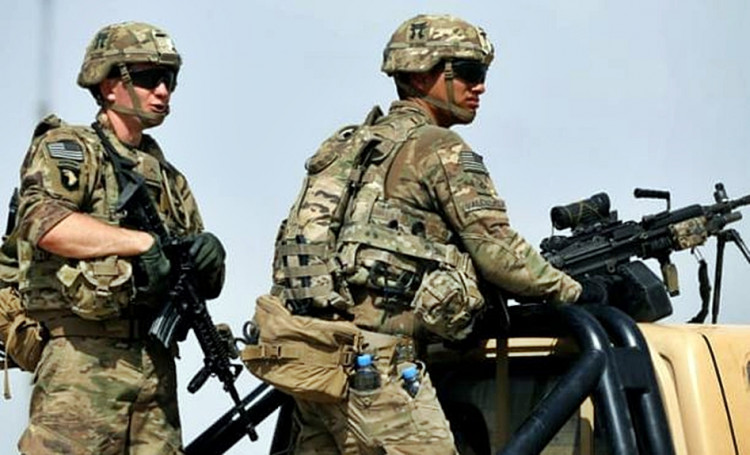The stalemated war in Afghanistan, now in its 17th bloody year for the United States, might or might not be on the brink of ending.
Negotiating teams from the United States and the Taliban meeting in Doha, Qatar have agreed in principle to a peace framework that might end this internecine war. Zalmay Khalilzad, the U.S. Special Representative for Afghanistan Reconciliation, said the framework for peace will see the Taliban vow to prevent Afghanistan from being used as a hub for terrorism in return for a U.S. military withdrawal.
"We have a draft of the framework that has to be fleshed out before it becomes an agreement," said Khalilzad, according to Reuters. "The Taliban have committed, to our satisfaction, to do what is necessary that would prevent Afghanistan from ever becoming a platform for international terrorist groups or individuals."
The peace negotiations have been described by Khalilzad as "more productive than they have been in the past." This remark seemed to indicate the first significant shift in the geopolitical stalemate in years. Khalilzad, however, said that "nothing is agreed until everything is agreed."
As the Special Representative for Afghanistan Reconciliation, a newly created post, Khalilzad's mission is to secure a peaceful resolution to the conflict in Afghanistan. Khalilzad, an Afghan who grew up in the USA, was appointed to this post in September 2018.
Both sides are working on a ceasefire that would lead to an agreement for dialogue. This agreement will first involve the U.S. and the Taliban and then the Taliban and the Afghan government. A ceasefire has been discussed but not agreed upon, said a source with knowledge of the negotiations.
The source said the Taliban won't agree to a ceasefire without the U.S committing to a full troop withdrawal, which is a non-starter for the Americans. Instead, the U.S. wants any withdrawal to be conditional on the ceasefire remaining unbroken. The U.S. also won't announce any plans for a troop withdrawal without the Taliban entering into discussions with the Afghan government.
The Taliban have said they don't believe the U.S. will actually withdraw if the ceasefire holds.
The Taliban have echoed Khalilzad's assessment. Taliban spokesman Zabihullah Mujahid said the talks saw progress on key issues. He did, however, warn that until the issue of withdrawal of foreign forces from Afghanistan is agreed upon, progress in other issues is impossible.
The United States Central Command (CENTCOM), the unified command responsible for Afghanistan, has received orders to commence preparations to pull about half of the U.S. troops from Afghanistan as a result of Trump's hasty announcement in December. The U.S. has more 14,000 troops in Afghanistan
America's longest war has taken the lives of more than 2,400 Americans, and 45,000 Afghan security personnel. Afghan President Ashraf Ghani said his country recognized the work American soldiers have undertaken in the country but "the job that we started together needs to move."
"We need to get a stable Afghanistan as an entity that can ensure the security of America and Europe and others on the one hand, but more fundamentally our own democratic rights and institutions and our right to live in peace and harmony," said Ghani.






